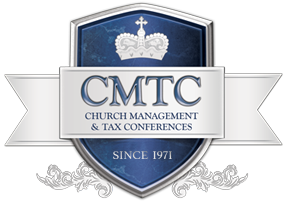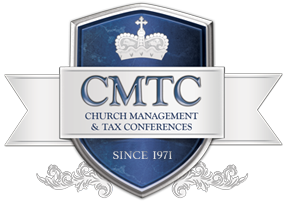We are quickly approaching the end of another year and many Church members will be gathering information to complete their income tax returns. One of the most important documents to the Church member is the Donation Letter that is proof of tax deductible donations the member made during the calendar year.
This letter can be a God-send or a nightmare if the individual is audited by the Internal Revenue Service. Every year donors have their donations denied as tax exempt because of errors the Church commits on the Donation Letter. One couple had a $29,000.00 donation denied that resulted in penalties, interest, and additional taxes.
As vital as this form is, every Church should be using ChurchGiftTM, which is the only software that completely tracks every entry and issues the proper IRS compliant receipts. The last thing a faithful giver should experience is the denial of the tax deduction by an IRS auditor.
God Cannot Bless A Mess
Churches all across America struggle from week to week to meet budget and wonder why they struggle while others seem to enjoy financial stability. Could it be that God cannot bless the struggling Church because of their shoddy bookkeeping practices? God demands excellence in everything we do. Anything short of that does not invoke the favor of God.
Any Church that is not diligent enough to issue IRS-compliant receipts to donors, probably has lack of compliance in other areas of Church finances. Every member should ensure their donation record is fully compliant. Below are some do’s and don’ts of Donation Statements.
1. Make sure the name and address of the donor is correct
Believe it or not, this simple requirement is one of the most overlooked by the Church Bookkeeper and the donor.
2. All Donation Letters should be mailed by January 31st
This form should be in the hands of the donors by this time. They have already received any W-2’s and 1099’s. If the taxpayer is to deduct his or her contributions, he or she must have the IRS-compliant Donation Receipt in their possession before they file.
3. All single donations that are $250.00 or more must be itemized or given special acknowledgement
Make sure these single donations of $250.00 adhere to IRC 170(f) (8) (A) (B) (C) which I have listed below:
• No deduction shall be allowed under subsection (a) for any contribution of $250 or more unless the taxpayer substantiates the contribution by a contemporaneous written acknowledgment of the contribution by the donee organization that meets the requirements of subparagraph (B).
• An acknowledgement meets the requirements of this subparagraph if it includes the following information:
(i)The amount of cash and a description (but not value) of any property
other than cash contributed.
(ii)Whether the donee organization provided any goods or services in
consideration, in whole or in part, for any property described in clause (i).
(iii)A description and good faith estimate of the value of any goods or
services referred to in clause (ii) or, if such goods or services consist solely
of intangible religious benefits, a statement to that effect.
For purposes of this subparagraph, the term “intangible religious benefit” means any intangible religious benefit which is provided by an organization organized exclusively for religious purposes and which generally is not sold in a commercial transaction outside the donative context.
• For purposes of subparagraph (A), an acknowledgment shall be considered to be contemporaneous if the taxpayer obtains the acknowledgment on or before the earlier of –
(i)the date on which the taxpayer files a return for the taxable year in
which the contribution was made, or
(ii)the due date (including extensions) for filing such return.
4. State as to whether or not the item is deductible, into which fund it was given, and the date of the donation
5. Do not give a receipt for donated time and services
This includes any vendor or contractor completing a job and reducing the bill to desire a tax-deduction for the balance.
6. Do not give a tax-deductible receipt for donated property
7. Do not estimate or appraise the donated property
The Church is only allowed to describe the property in detail and if the Church is able to use it for furtherance of its tax exempt purposes.
8. Do not give a receipt for any donation that has “strings” attached
Any gift given by a donor, that the donor wants control over how the Church uses the money is not tax-deductible.
9. Do not give a receipt for donated rent
A landlord is not allowed a tax-deduction for any rent or lease payments that he or she chooses to donate to the Pastor or Church.
In Closing
Church and non-profit tax laws are tricky and misunderstood by most accountants and attorneys, unless they specialize in Church Law.
This is why it is imperative that every Pastor, Church Treasurer, and Board Member to attend one of our Church Management Tax Conferences immediately. It is not what you know that will hurt you, but what you don’t know.
Chitwood and Chitwood is the ULTIMATE Church and Clergy tax professional in the world. With more than 77 years of experience, we know how to free the Pastor and Church to focus on ministry rather than trying to focus on the complicated Church Administrative and Tax Laws. Contact us at drshaw@cmtc.org or visit www.cmtc.org to order our ultimate ChurchGift Software or register for a Church Management Tax Conference near you. YOU HAVE NO TIME TO LOSE! CONTACT US NOW!

